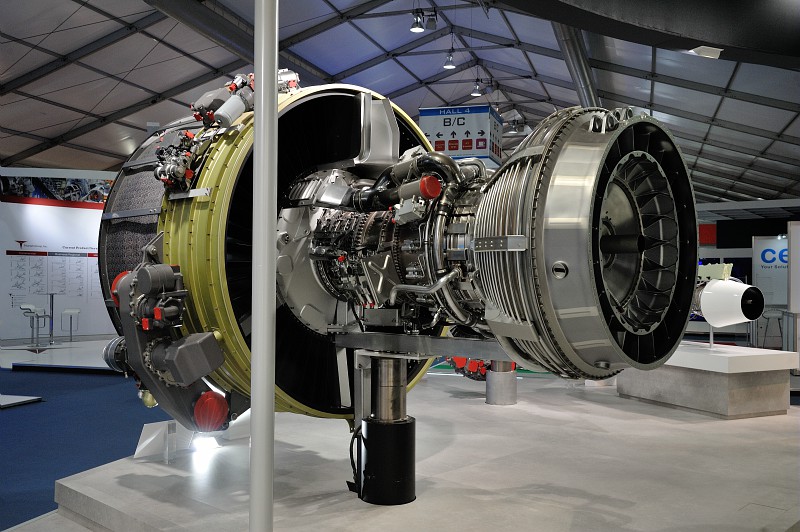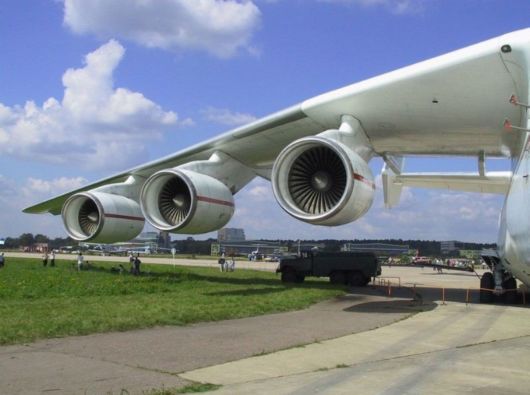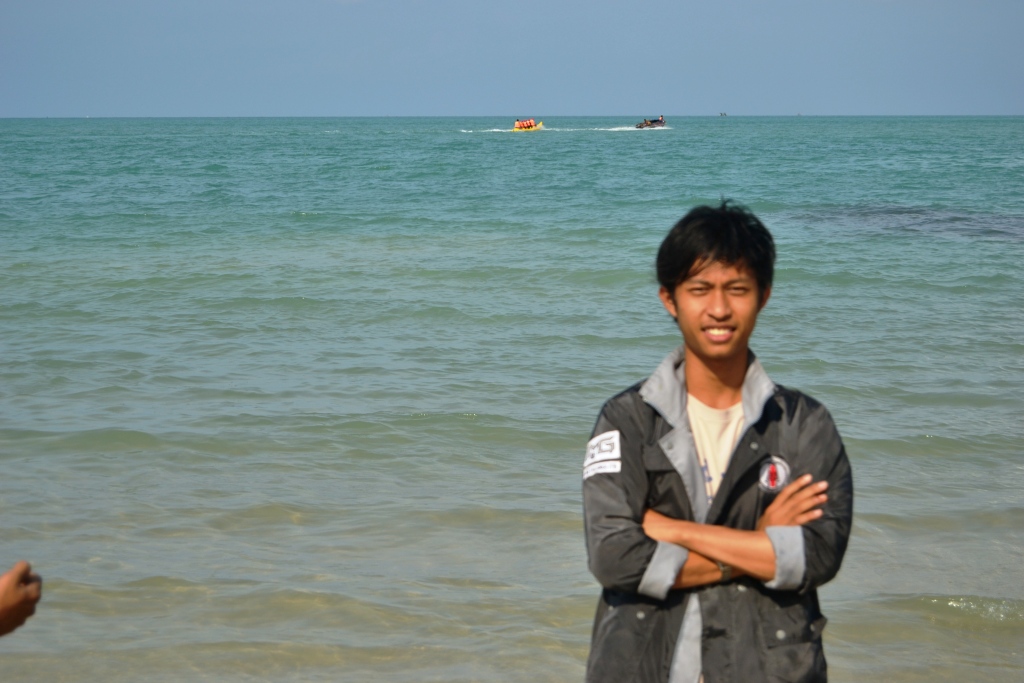Ahmad Fauzi: Research Corrosion Resistance of Ti-Al Intermetallic Alloy At High Temperature.
By Teguh Yassi Akasyah
Editor Teguh Yassi Akasyah

 BANDUNG, itb.ac.id - Currently, research on heat-resistant material managed to grab the attention of researchers, especially in the field of materials and metallurgy. The heat-resistant material developed for applications at very high temperatures with emphasis on properties such as tensile, thermal, vibratory or shock and oxidation resistance. One of the heavily studied alloy is Ti-Al intermetallic alloy or titanium aluminide alloys, an alloy that has a low density that is expected to improve fuel efficiency and engine efficiency. However, the alloy is often used for turbine blade materials and automotive engine has less good oxidation resistance at temperatures above 700 C, thus requiring further research on the matter.
BANDUNG, itb.ac.id - Currently, research on heat-resistant material managed to grab the attention of researchers, especially in the field of materials and metallurgy. The heat-resistant material developed for applications at very high temperatures with emphasis on properties such as tensile, thermal, vibratory or shock and oxidation resistance. One of the heavily studied alloy is Ti-Al intermetallic alloy or titanium aluminide alloys, an alloy that has a low density that is expected to improve fuel efficiency and engine efficiency. However, the alloy is often used for turbine blade materials and automotive engine has less good oxidation resistance at temperatures above 700 C, thus requiring further research on the matter.  Moving on from these problems, Ahmad Fauzi (Metallurgical Engineering, 2010) conducted a study of the corrosion resistance of the alloy Ti-Al. In this study, Fauzi using intermetallic alloys (atomic%) Ti-47Al-2NB-2CR-0,5Zr-0,5Y. The method used is the method of pack aluminizing and hot corrosion test. Research which conducted at the Laboratory of Metallurgical Engineering ITB is the theme for the final project Fauzi in her studies with the title "Hot Corrosion Resistance Study of Two-Phase Intermetallic Alloys Ti-47Al-2NB-2CR-0,5Zr-coated 0,5Y Pack Aluminized Coating On The temperature of 700 C, 800 C, and 900 C ". Students who have graduated in the First Graduation ITB for the 2014/2015 academic year, choosing to study in the field of the reasons interest in corrosion science that is often learned in Metallurgical Engineering.
Moving on from these problems, Ahmad Fauzi (Metallurgical Engineering, 2010) conducted a study of the corrosion resistance of the alloy Ti-Al. In this study, Fauzi using intermetallic alloys (atomic%) Ti-47Al-2NB-2CR-0,5Zr-0,5Y. The method used is the method of pack aluminizing and hot corrosion test. Research which conducted at the Laboratory of Metallurgical Engineering ITB is the theme for the final project Fauzi in her studies with the title "Hot Corrosion Resistance Study of Two-Phase Intermetallic Alloys Ti-47Al-2NB-2CR-0,5Zr-coated 0,5Y Pack Aluminized Coating On The temperature of 700 C, 800 C, and 900 C ". Students who have graduated in the First Graduation ITB for the 2014/2015 academic year, choosing to study in the field of the reasons interest in corrosion science that is often learned in Metallurgical Engineering.Research On Corrosion Resistance Against Ti-Al Intermetallic Alloys
 The formation of intermetallic phases have been developed at this time, because the material with intermetallic phase has several advantages such as high strength at high temperature, high oxidation and corrosion resistant, has a high melting point, and has a low density. In this study, the use of intermetallic alloy is Ti-Al that has been developed for high temperature operation in oxidative environments. However, the rate of oxidation can not be tolerated because it will be oxidized to form TiO2 were not protective. In a gas turbine engine that is often experienced thermal cycling, this condition will result in fracturing (cracking) and exfoliation (spalling) oxide crust.
The formation of intermetallic phases have been developed at this time, because the material with intermetallic phase has several advantages such as high strength at high temperature, high oxidation and corrosion resistant, has a high melting point, and has a low density. In this study, the use of intermetallic alloy is Ti-Al that has been developed for high temperature operation in oxidative environments. However, the rate of oxidation can not be tolerated because it will be oxidized to form TiO2 were not protective. In a gas turbine engine that is often experienced thermal cycling, this condition will result in fracturing (cracking) and exfoliation (spalling) oxide crust.In this study, Fauzi tried to research the corrosion resistance of the alloy by using pack aluminizing and hot corrosion test. Pack aluminizing is a method of enrichment of Al in the alloy with a diffusion coating process, which uses a source of Al coatings by the method of pack cementation. It can be selected to increase the levels of Al on the surface of a two-phase alloy-Ti3Al alpha / gamma-TiAl substrate in order to maintain sufficient mechanical properties at high temperatures. In this study, the material used to pack aluminizing form NH4Cl as activator, powder of Al and inert filler Al2O3 with the composition of each of 2%, 20% and 78%. This process will produce a phase TiAl3 which rich on its Al at the surface of the substrate.
While the hot corrosion tests performed on both the in-alloy and alloy coatings that are not in-coating at a temperature of 700 C, 800 C and 900 C with a temperature variation test of time ie, 1, 5, 10 and 22 hours. Temperature variation performed to study the resistance of the alloy at various temperatures. Testing is done by dipping the alloy in molten salt 90% Na2SO4 and 10% NaCl. Through these tests can be seen corrosion rate based on changes in weight and depth of corrosion.
Based on the research, the results of the experiment showed that in the alloy coating by pack aluminizing provide better corrosion resistance in corrosion rate is parabolic. Alloys that are not in-coating showed significant exfoliation especially at a temperature of 800 C and 900 C. As for the hot corrosion test, at a temperature of 800 C obtained the highest corrosion rate based on changes in weight and depth of corrosion. In addition to testing the robustness, Fauzi also test XRD and SEM / EDS to determine the composition of the oxides are formed.
Ahmad Fauzi: Academic and Organizations Must be Balanced
 As a student, Fauzi has a strong commitment to run his studies in ITB. The driver is this spirit that continue to be held by Fauzi, this was also made Fauzi dare to explore knowledge. "Through organizations, a person can learn various soft skills that would be needed to work, and soft skills is a knowledge that not fully obtained in a lecture," said students who had served as Chairman of the Department of Academic and Profession of Metallurgical Engineering Students Association (IMMG) ITB for the management period 2013 / 2014.
As a student, Fauzi has a strong commitment to run his studies in ITB. The driver is this spirit that continue to be held by Fauzi, this was also made Fauzi dare to explore knowledge. "Through organizations, a person can learn various soft skills that would be needed to work, and soft skills is a knowledge that not fully obtained in a lecture," said students who had served as Chairman of the Department of Academic and Profession of Metallurgical Engineering Students Association (IMMG) ITB for the management period 2013 / 2014. 
.jpg)

.jpg)
.jpg)
.jpg)
